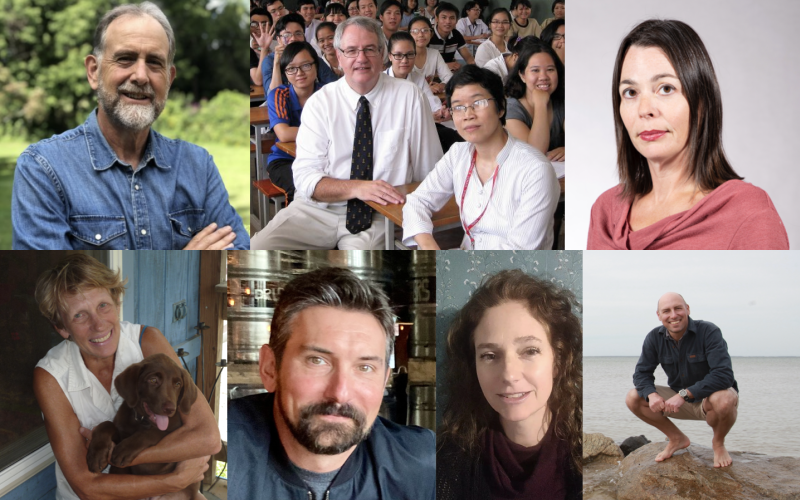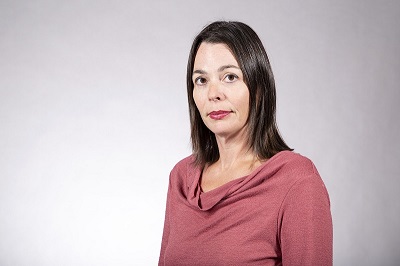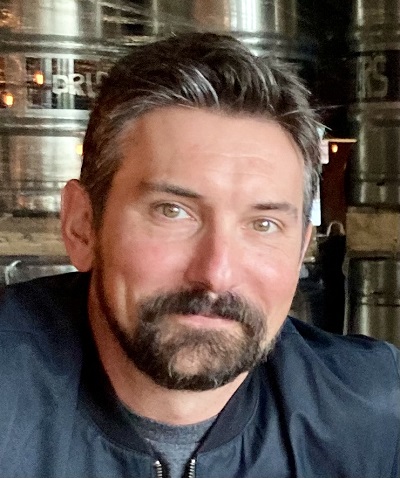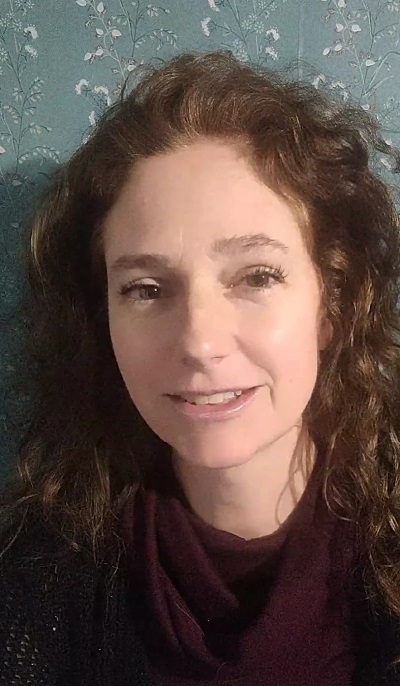Seven UAlbany Faculty Win Fulbright Scholar Awards

By Bethany Bump
ALBANY, N.Y. (July 6, 2023) — Seven University at Albany faculty and staff members have received a Fulbright U.S. Scholar Program award to conduct research and teach in their respective fields across Europe, South America, Central America and Asia during the 2023-2024 academic year.
The awards are given by the U.S. Department of State and the Fulbright Foreign Scholarship Board to over 800 U.S. faculty members, artists and professionals from all backgrounds, each chosen for their academic merit and leadership potential. The program allows scholars to engage in cutting-edge research abroad and expand their professional networks, laying the groundwork for research collaborations and future partnerships between institutions.
“Promoting research excellence, international partnerships and student success are among our very top priorities at UAlbany, so the news of these distinguished scholars taking their ideas and teaching skills to points across the globe is especially exciting,” said Carol Kim, provost and senior vice president for Academic Affairs at UAlbany. “We applaud the hard work and innovative thinking that led them to receive these awards, and we look forward to the promising exchanges their work abroad will open up — for them as well as for our faculty, students and the larger UAlbany community here at home.”
Since 1946, the Fulbright Program has provided more than 400,000 participants from over 160 countries with the opportunity to exchange ideas. Funded through an annual appropriation made by Congress to the U.S. Department of State’s Bureau of Educational and Cultural Affairs, the program also receives direct and indirect support from participating governments, host institutions, corporations and foundations around the world.
UAlbany faculty selected for the 2023-2024 program year have backgrounds in sociology, history, education, policy and psychology. They will be researching and teaching in France, Spain, Ireland, Colombia, Costa Rica, Chile, Laos, Cambodia, Vietnam and Indonesia.
More details about their individual awards are below.
Peter Brandon
Professor and chair, Sociology
Brandon won a Fulbright-Tocqueville Distinguished Chair Award to study at the French National Institute for Demographic Research (INED) in Paris and offer graduate seminars at France’s School of Advanced Studies in Demography and the Paris 8 University, formerly part of the University of Paris.
A social demographer who works in the fields of population sciences, family well-being and economic sociology, Brandon’s current research focuses on more accurate measurements of economic inequality and maternal and child health.
He will begin his work in Paris in late August, and said the award will allow him to collaborate with his French colleagues after several years of planning and consultations.
"To have the opportunity to work with some of the world’s best population scientists and preeminent scholars of economic inequality is a tremendous honor," he said. “I hope that we can make progress in accurately documenting the roles that social forces and political economies play in determining variation in maternal mortality rates, as well as build long-term collaborations among INED scientists, scholars at Paris 8 University, and the Department of Sociology at UAlbany.”
Joanna Dreby
Professor, Sociology and Latin American, Caribbean & U.S. Latino Studies
Dreby will spend six months in Spain, starting in January 2024, for research and teaching activities sponsored by the Universidad Carlos III de Madrid (UC3M).
She will be working on a book about the ways immigration policies affect young adults raised in New York with foreign-born parents — a project she has been collecting interviews and data for since 2019. While in Spain, she will collect interviews on the same topic with young Spanish citizens with foreign-born parents.
She also plans to participate in seminars at the Universidad de Sevilla and at UC3M, where she will teach an immersive course on qualitative research design for graduate students.
Dreby said the experience will help put her work on U.S. immigration policies into a more global perspective and enable her to forge connections with scholars working in the European context.
“I look forward to meeting young adults with immigrant parents in Spain to learn about — and eventually help to share — their stories,” she said. “The experience is also important to me in terms of teaching, as I hope to expand on my experience and expertise by learning from students in a different university environment. I have always felt study terms abroad are especially important to building empathy and perspective, and have spent time in Chile, Mexico and Costa Rica previously. I look forward to the Fulbright experience as it will help me to build a stronger exchange with scholars and students working on migration from the Americas from a European perspective.”
Dreby has won previous Fulbright grants to conduct research in Mexico from 2004-2005 and Costa Rica in 2017.
Ryan Irwin
Associate professor, History, and director of the Institute for History and Public Engagement
Irwin won a Mary Ball Washington Chair in American History at the University College Dublin in Ireland, where he will be teaching a course this fall and writing a book chapter.
Trained as a historian, Irwin is fascinated by people living outside the U.S. who try to affect U.S. policy by framing their interests or beliefs as an extension of American ideas — a concept he explored in his book, Gordian Knot, which explained how opponents and supporters of apartheid tried to score support from U.S. policymakers after decolonization.
“The two sides had the same goal — U.S. support — but they used different arguments and brought their arguments to different political spaces, which I found interesting,” he said. “I'm also fascinated by the lengths that powerful Americans have gone to to convince themselves that the United States is totally unlike past empires.”
Irwin is continuing to explore these concepts in two new books, including one that looks at the role law schools played in training many powerful American lawyers and non-American lawyers after the 1940s, and another about a housing complex in Queens that was built to accommodate United Nations workers and opened its doors to a group of American Jews and African Americans who became famous afterward.
“Like the lawyers, these folks believed that the United States was unlike past empires — but for totally different reasons,” he said.
“The United States has had a big footprint in the world for a long time,” he added. "It's one thing to assert that fact and debate it as ‘good’ or ‘bad.’ It's another to get into the dirt and talk about what that’s actually meant — and I like to think I live in that dirt.”
Christopher Pastore
Associate professor, History
Pastore will spend six months in Colombia starting in January 2024 working in the Department of History and Geography at the Universidad de los Andes in Bogotá.
An environmental historian who specializes in the history of oceanic and coastal environments, Pastore will co-teach a course on the environmental history of the western hemisphere and will conduct research at the Archivo General de la Nación, the Biblioteca Nacional and the Biblioteca Luis Angel Arango for a project on the human history of mangrove use and conservation in coastal Colombia.
He also plans to visit Cispatá Bay in Córdoba along the Caribbean coast, where one of the world’s first and most comprehensive efforts toward mangrove restoration is currently underway.
“This Fulbright award opens new possibilities for my teaching and research,” he said. “My work on mangrove forests in the past and present will be included in my book-in-progress, which has a working title of A Thousand Thousand Slimy Things: A Natural History of the Sea from the Bottom Up. While working with students and colleagues at the Universidad de los Andes and conducting archival and field research, I will also forge new scholarly collaborations, sharpen my Spanish language skills, and gain a deeper understanding of Colombia’s important contributions to environmental knowledge and coastal conservation. And I’ll bring all of this new knowledge and experience back to UAlbany.”
Carol Rodgers
Professor, Educational Theory and Practice
Rodgers will spend four months in Costa Rica researching and teaching courses in the fields of reflective inquiry, learning and teaching in cooperation with the Universidad Nacional (UNA) and the Ministry of Public Education (MEP).
Rodgers will teach several courses for teachers-in-training that focus on reflective inquiry, which she describes as cultivating the capacity to “see” (be present to) students, their learning, the contextual forces that shape their experience, and to respond with deep subject matter knowledge, compassion and pedagogical skill.
“All my work is guided by the belief that the purpose of education is the extension of our humanizing capacities and the strengthening of democratic societies,” she said. “By extension, this also applies to caring for the planet. All of these depend upon relationships sustained through collaborative inquiry. It is an immodest goal but a necessary one if we are to survive. Any single effort will be small to insignificant, but, as Gandhi is reported to have said, ‘it is very important that we do it.’”
Rodgers hopes to establish an exchange between secondary teacher education programs, including placements in both American schools and Costa Rican schools as well as shared teacher education classes.
“The relationships I form with teacher educators and schools will also continue as I will provide ongoing support for their work in communities of inquiry once I am gone,” she said. “These relationships will also open opportunities for research by both UAlbany doctoral students and faculty as well as opportunities for Costa Rican graduate students to study at UAlbany.”
This is the second Fulbright award for Rodgers, whose first was a year-long assignment in South Africa in 2011.
April Roggio
Research associate, Center for Policy Research
Roggio will be in Chile from March through June 2024 for a research project looking at local food systems with Pablo Isla Madariaga, a UAlbany alum, at the Universidad Técnica Federico Santa María (UTFSM) in Santiago.
“We aim to create a long-term research agenda focused on food systems and sustainability, and build a robust collaboration between our university faculties and students,” she said.
She will be building on work started by Paul Miesing, professor emeritus from UAlbany’s School of Business, who visited UTFSM as a Fulbright Specialist this past spring. The two first met in 2017 at a food insecurity symposium he led at the School of Business and have been working on food policy issues in the years since, she said. They're currently leading a project that considers the differences in local food systems between the U.S. and Chile.
Roggio’s background is in public administration from UAlbany’s Rockefeller College — specifically in judgment and decision sciences for the public sector. She and her research team are currently engaged in several projects, including a municipal assessment of food system localization efforts in New York and an evaluation of New York’s regional economic development council model.
Bruce Svare
Professor emeritus, Psychology
Svare was originally slated to go to Southeast Asia in 2021 after winning his third Fulbright award through the organization’s Association for Southeast Asian Nations (ASEAN) research program. But the COVID-19 pandemic put a wrinkle in those plans.
So the psychology professor, who officially retired in 2021, reapplied — and won again. Starting in January 2024, he will spend time in Laos, Cambodia, Vietnam and Indonesia to promote the development of contemporary psychology in those countries with a goal of aiding the diagnosis and treatment of mental illness.
Svare will assist faculty with curriculum development and scholarly publishing, research psychology infrastructure in higher education, and assess mental health care systems and ASEAN’s critical need to train more professional psychologists. His work will culminate in a presentation of his findings at ASEAN headquarters in Jakarta, Indonesia.
“It is an honor and privilege to be selected by our government to be a Fulbrighter to ASEAN,” Svare said in 2021. “It is my sincere hope that my work will improve the status of psychology in this region of the world and ultimately help the 655 million citizens of ASEAN who are in need of more professionalized mental healthcare.”
Svare won his first Fulbright award in 2006 to promote the development of the psychology field in Thailand. He won his second award in 2014, with a similar mission that he extended to Vietnam, the Philippines and other countries in the region.










